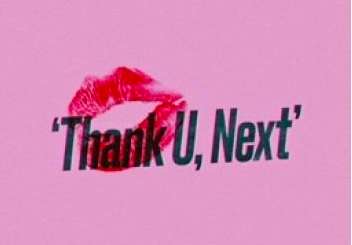‘Thank U, Next’ Reflects Upon Four Classic Women’s Empowerment Films

Picture by Tyler Sinness
December 18, 2018
Ariana Grande’s new song and accompanying music video made headlines recently, and anyone who has been on the Internet since its release has likely found the Grande fanaticism to be unavoidable.
Grande wrote “Thank U, Next” to openly speak about the attention surrounding her lovelife. Recently, the artist has come under fire for dating three men in rapid succession, moving from Big Sean to Mac Miller to Pete Davidson within a short time period. When famous artist Mac Miller died, the public decried Grande for what they saw as a cold-hearted reaction to his passing. After the artist broke off her engagement with actor Pete Davidson, the ex-fiancé reportedly had not taken the breakup well, leading fans to further denounce Grande’s apparent apathy towards her ex-partners’ emotions.
The music video for “Thank U, Next” puts this to rest. Grande wanted to use the guise of a fun, airy song and music video to change the narrative surrounding her romantic history. As the video progresses, Grande moves from one classic film to the next, reenacting famous scenes from (in order of succession) Mean Girls, Bring It On, 13 Going On 30, and Legally Blonde. These films have some similar characteristics: they can be described as “chick-flicks” that were heavily popularized in the 2000s. However, they are not simply flashy pinks and simple messages but rather a product of an era of women’s empowerment in films.
The purposes of all of these films are both to entertain and to give emotional depth to female characters in major roles, who still have issues that persist in Hollywood today. Through their hot pink façade, these films portray the message that women can succeed without sacrificing their femininity. For example, Legally Blonde, by all standards, is a “chick-flick.” Reese Witherspoon plays Elle Woods, a Harvard law student that strays from the typical image of an Ivy League scholar by donning feather boas and carrying a chihuahua in a tutu. However, the pessimistic expectations of her peers are shattered once she wins a major court case by using her intellect. Films such as these do not attempt to paint women in a professional, modest light; instead, they exaggerate the conventions of femininity to emphasize their message of female empowerment. All of these films have two commanding messages that explain why Grande chose the films: women should not be held responsible for men’s actions. Women are powerful through their own accord.
Grande effectively deflected the negativity surrounding her image by changing the narrative entirely. Beyond her performance in famous scenes from 2000s “chick-flicks,” the lyrics of the song describe how Grande has grown emotionally from her experiences with her previous romantic partners and offers a different perspective to the criticism she has been facing in recent weeks. Clearly, Grande knows how to shape her public image, and there is no doubt that the Internet will be fascinated with the star for many years to come.



